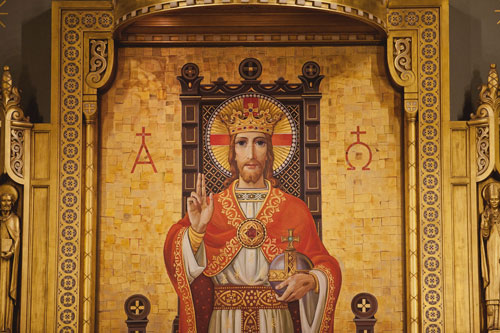Holiday Preaching
With Christmas coming soon, maybe you’re working on what you might preach or teach on the Sunday before Christmas or at a Christmas Eve service. For many of us preachers, holidays can be difficult. I can think of at least four reasons why.

Holiday preaching is more difficult because more visitors are present. We should thank the Lord if this is the case, because it isn’t true everywhere. But knowing there are more visitors than usual at our special holiday services give us an opportunity we don’t’ want to pass up. There are many kinds of visitors: occasional, reluctant, traditional, relatives, and more. We want to know, “How can we speak to them in a way that faithfully presents Jesus and draws them in?”
Holiday preaching is more difficult because we may feel we preach the same message year after year. For those who regularly attend our church, that’s a great thing. But sometimes we feel that those who only come to us on holidays hear the same message the few times they come.
Holiday preaching is more difficult because we usually preach for a shorter time than usual. As preachers we get into a rhythm, and because all that goes on with a holiday service, we often preach for a shorter time. That can throw us off.
Holiday preaching is more difficult because there is usually a greater element of production to the service in general, and with our sermon. We don’t want to feel like we are putting on a production, but we want the service to be special and meaningful.
So, what can we do? Here’s a few things that might be helpful to keep in mind.
– Remember the power of the story, and let the story speak for itself.
– At the same time, don’t hesitate to proclaim what the storymeans. Our listeners need to hear that!
– Without trying to be too clever (this is a trap!) be open to looking at the Christmas or Easter story from a different angle.
– Maybe take a Bible passage that isn’t normally associated with Christmas and Easter and show how it proclaims the great message.
I’m praying that this coming holiday season is blessed for you in every way – and that whatever preaching and teaching opportunity God’s gives you this holiday season, you are both faithful and blessed in proclaiming God’s good news.
Blessings to You in Jesus’ Name – David Guzik
Click Here to Receive Email from David for Pastors, Preachers, and Bible Teachers









